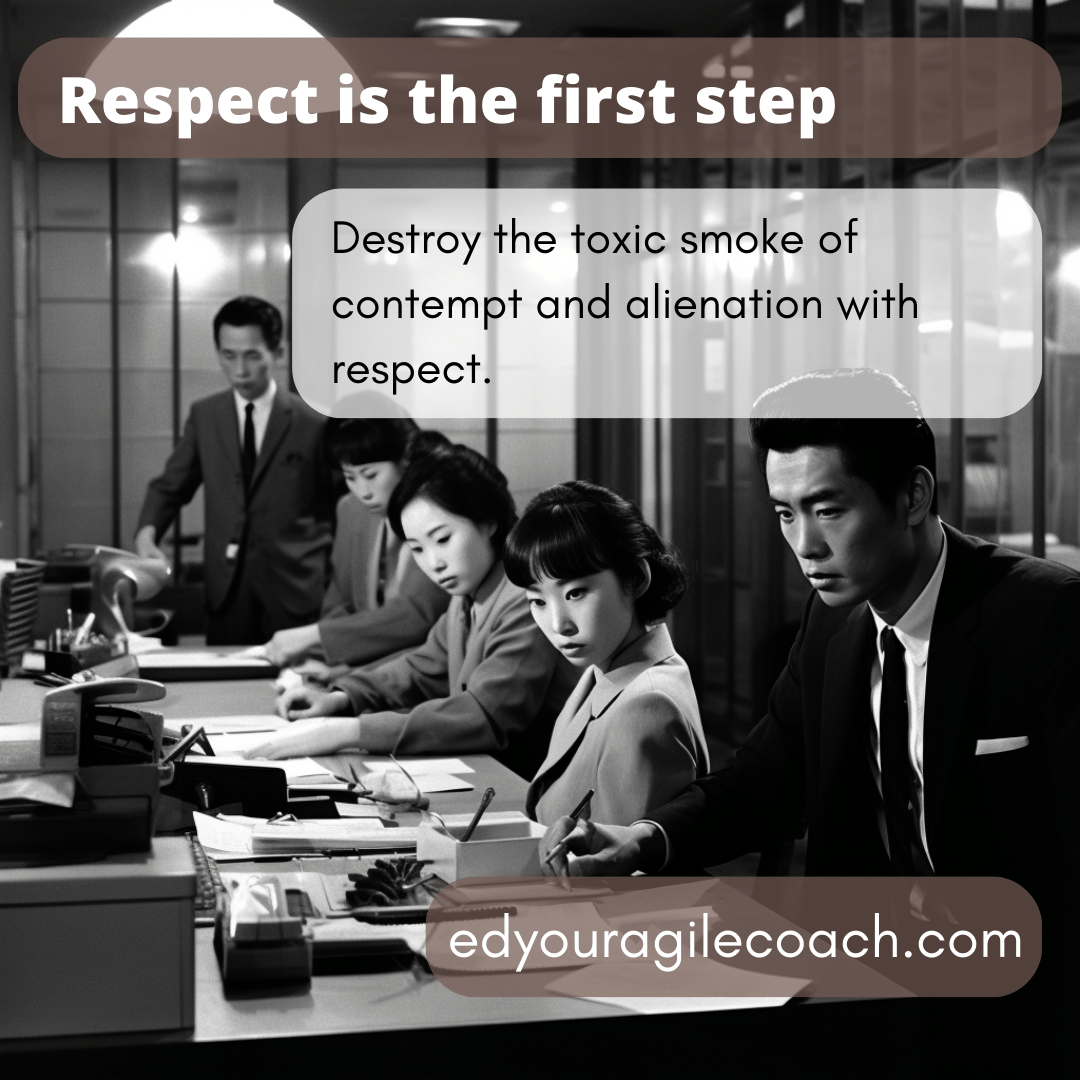Why companies resist the "Agile Mindset".

It is challenging to explain Agile to others outside my profession. The Agile Manifesto outlines four values and twelve principles that govern how people should approach work. It is up to people like myself to make sure the manifesto and principles are not abused. To be successful, it is not enough to have talented professionals doing the work and following a successful formula. Those professionals must collaborate as a team willing to take risks and innovate. Scrum masters and agile coaches call this the “Agile Mindset.”
I have been working in the agile orbit for nearly ten years. It is a rewarding and challenging line of work. Plenty of business leaders like the results agile brings to software development teams. Research from the Standish Group has shown projects done in an agile manner are more successful and have fewer budget overruns. Based on this knowledge, business leaders should be falling all over themselves to implement agile.

In reality, agile faces severe organizational and cultural hurdles. I say this because agile strongly emphasizes continuous improvement and corporate transparency. For managers who are incompetent, absent, micromanaging, or power-hungry, agile is a threat. Ken Scheweber says agile holds a mirror up to the organization. Resistance to agile happens when an organization does not like what it sees and attempts to smash the mirror.
I have experienced this resistance firsthand. A manager was reduced to spasms of rage when I said he could not poach a developer for another project until a sprint ended. A network administrator deliberately denied technical support for continuous integration and builds because they did not want developers “…touching my servers.” Finally, I remember someone from governance saying they had been doing production rollouts the same way for ten years. It was puzzling to them why anyone would change a system that worked correctly for them. I have seen and heard almost every alibi and excuse NOT to be agile. Why is it happening?
The answer is the fear and uncertainty built into each corporation. It is not enough to be profitable. A corporation must be profitable according to the expectations of shareholders. If not, share prices can fall precipitously. Years of retirement savings can vanish in an afternoon. The focus on this shareholder value forces companies to squeeze profit out of anything. For instance, employees are expensive, so layoffs, “right-sizing,” and automation improve profits without doing the messy work of developing the product or increasing sales. A Keurig machine where employees bring their coffee replaces a coffee pot with free coffee. Employees are expected to do janitorial work or empty trash cans less frequently. Failure to maintain or increase these profit figures leads to unemployment, which is a pathway to financial ruin.
The power-hungry pursue leadership to inflict harm on others rather than suffer the everyday indignities of office work. The absent hope and invisibility will protect them from accountability. The incompetent bluff their way into the organization and pin their failures on others. The micromanager lacks trust that people can do their job, which threatens their livelihood. Each of these poor leaders is anti-agile. Poor leadership drives away good employees and slowly choke the organization. These individuals survive because the pace of business at a large organization makes it easy for these individuals to hide in plain sight.
With lousy leadership, the only people who stick around are bad employees. It becomes a feedback loop of awfulness. This is why an agile coach spends plenty of time struggling against the organization, and it can be lonely. It is sobering because you will face it often in your career. So be prepared for resistance to the “agile mindset.” It is not because people do not want to be successful. Instead, the fear and uncertainty of a modern corporation discourage the mindset from happening.
Until next time.




Comments ()